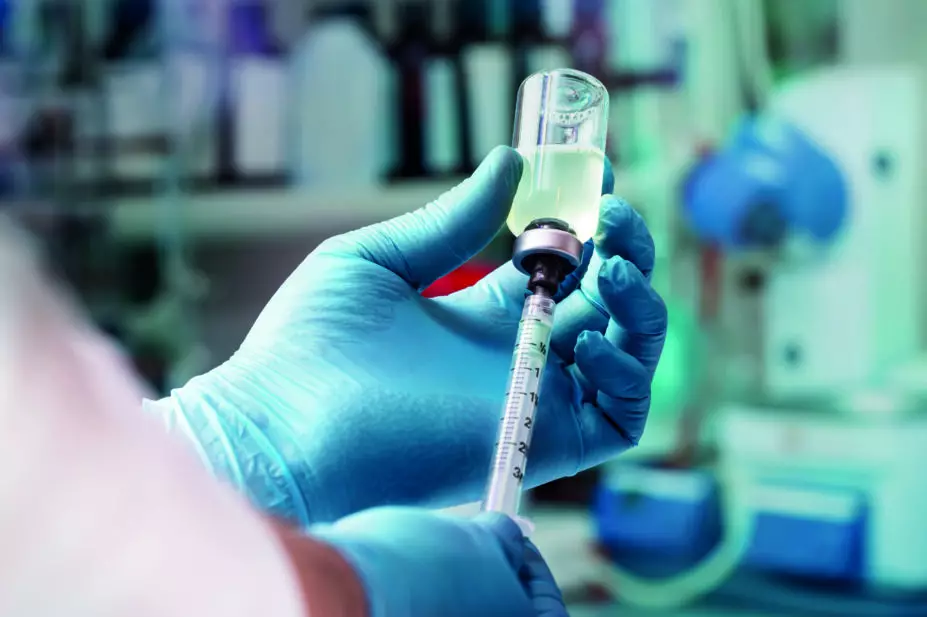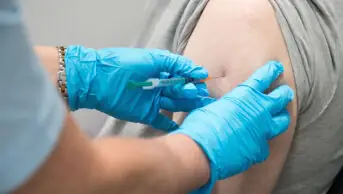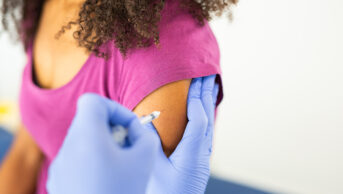
Shutterstock.com
Open access article
Participants in a COVID-19 vaccine booster trial in Bradford, West Yorkshire, have become the first in the world to receive a third dose of the vaccine.
The trial is part of the COV-Boost study, which is funded by the National Institute for Health Research. It was announced by the Department of Health and Social Care in May 2021 as the first study, globally, to provide data on the impact of a third dose of COVID-19 vaccine on patients’ immune responses.
On 1 June 2021, Professor Alex Brown, deputy medical director at Bradford Teaching Hospitals NHS Foundation Trust, became the first study participant to receive a third dose at the Bradford Institute for Health Research, based at Bradford Royal Infirmary.
Across the UK, there will be 16 sites involved in the study, backed by £19.3m of government funding, with Bradford being the first site to launch.
Participants will be adults, aged 30 years or older, and will include those immunised early on in the vaccination programme, such as frontline healthcare workers.
Researchers will consider seven different COVID-19 vaccines as potential boosters, which will be given at least 10–12 weeks after the participants’ second COVID-19 vaccine dose as part of the ongoing vaccination programme. One booster will be provided to each volunteer and may be a different brand to the one they were originally vaccinated with.
Vaccines being trialled include Oxford/AstraZeneca, Pfizer/BioNTech, Moderna, Novavax, Valneva, Janssen and Curevac, as well as a control group.
“We are very excited to be the first study site to launch this very important trial,” said Dinesh Saralaya, principal investigator of the trial at Bradford.
“We are on target to recruit a total of 148 participants in Bradford, all of whom will play a vital role in helping us discover how the various COVID vaccines work with one another, so that we can be well prepared in the autumn when people are offered booster vaccinations.
“As we know, vaccines are the only way out of this pandemic and research is vital in the hope of us getting back to normal.”
The trial aims to recruit more than 2,800 participants to take part across the 16 sites. All participants will be monitored for any potential side effects throughout the study and will have blood tests taken to measure their immune responses.
Each site also has an electronic diary for all participants that sends alerts to the team in real time, if needed, and a 24-hour emergency phone number for a doctor on the study, who can provide further clinical advice.
Gino Martini, chief pharmacist at the Royal Pharmaceutical Society, said the trial could be a “breakthrough”.
“Having this trial conducted to look at the different mechanisms of vaccination is critical,” he said. “It could lead to greater flexibility for vaccinators, which would be great for patients.”
The initial findings of the COV-Boost trial are expected in September 2021 and will help inform decisions made by the Joint Committee on Vaccination and Immunisation on plans for a booster programme from autumn 2021.
READ MORE: Ten things pharmacists should know about COVID-19 vaccines


